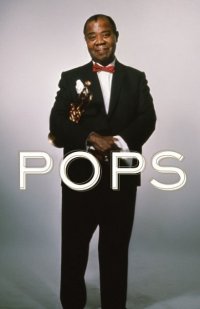Scientists are forever proving what everybody knows, especially when it comes to music. It’s been demonstrated, for instance, that music has the power to influence our perception of human emotions–but how does that process work? Might it possibly be related to the endlessly intriguing question of what, if anything, music means? That’s the subject of my latest “Sightings” column in Saturday’s Wall Street Journal.
Could it be that the emotional power of music has something to do with the fact that we don’t know what it means? To find out, pick up a copy of tomorrow’s Journal and see what I have to say.
UPDATE: Read the whole thing here.
Archives for 2009
TT: Almanac
“The week in the hospital was a long and exquisitely serialized course of suspense. Nothing in the X ray, nothing in the blood tests, nothing in the other examinations. There remained a report on a throat culture that had had to be sent to the state laboratory. That turned up some streptococcus infection.
“‘So that’s it,’ Dr. Cameron said, greeting me at the elevator. ‘Her temperature’s been normal now for two days, so it’s probably let up. She’s just walked in the hall without any pains. She feels a lot better. Give it another day and you can take her home. But anyhow, we’ve eliminated everything serious.’
“That was the happiest moment of my life. Or the next several days were the happiest days of my life. The fairy would not become a gnome. We could break bread in peace again, my child and I. The greatest experience open to man is the recovery of the commonplace. Coffee in the morning and whiskeys in the evening again without fear. Books to read without that shadow falling across the page. Carol curled up with one in her chair and I in mine. And the bliss of finishing off an evening with a game of rummy and a mug of cocoa together. And how good again to sail into Tony’s midtown bar, with its sparkling glasses, hitherto scarcely noticed, ready to tilt us into evening, the clean knives standing upended in their crocks of cheese at the immaculate stroke of five. My keyed-up senses got everything: the echo of wood smoke in Cheddar, of the seahorse in the human spine (the fairy would not be a gnome!), of the dogwood flower in the blades of an electric fan, or vice versa…But you can multiply for yourself the list of pleasures to be extorted from Simple Things when the world has once again been restored to you.”
Peter De Vries, The Blood of the Lamb
TT: So you want to see a show?
Here’s my list of recommended Broadway, off-Broadway, and out-of-town shows, updated weekly. In all cases, I gave these shows favorable reviews (if sometimes qualifiedly so) in The Wall Street Journal when they opened. For more information, click on the title.
Warning: Broadway shows marked with an asterisk were sold out, or nearly so, last week.
BROADWAY:
• Alfred Hitchcock’s The 39 Steps (comedy, G, suitable for bright children, closes Jan. 10, reviewed here)
• God of Carnage * (serious comedy, PG-13, adult subject matter, closes Jan. 3, reviewed here)
• South Pacific * (musical, G/PG-13, some sexual content, brilliantly staged but unsuitable for viewers acutely allergic to preachiness, reviewed here)
• A Steady Rain * (drama, R, totally unsuitable for children, closes Dec. 6, reviewed here)
• Superior Donuts (dark comedy, PG-13, violence, reviewed here)
OFF BROADWAY:
• The Fantasticks (musical, G, suitable for children capable of enjoying a love story, reviewed here)
• Our Town (drama, G, suitable for mature children, reviewed here)
CLOSING SOON IN ASHLAND, OREGON:
• The Music Man (musical, G, very child-friendly, closes Nov. 1, reviewed here)
CLOSING SOON IN STRATFORD, ONTARIO:
• The Importance of Being Earnest (comedy, G, closes Oct. 30, reviewed here)
CLOSING SUNDAY IN CHICAGO:
• The History Boys (drama, PG-13/R, adult subject matter, too intellectually complex for most adolescents, reviewed here)
CLOSING SUNDAY IN SPRING GREEN, WIS:
• Long Day’s Journey into Night (drama, PG-13, adult subject matter, too long and demanding for some adolescents, reviewed here)
TT: Almanac
“The only person who can afford to be a purist is a professional artist; most purists are neither professionals nor artists.”
Spike Hughes, Second Movement
TT: A question of taste
TT: Snapshot
Robert Benchley in “The Treasurer’s Report,” filmed in 1928:
(This is the latest in a weekly series of arts-related videos that appear in this space each Wednesday.)
TT: Almanac
“There seems to be no lengths to which humorless people will not go to analyze humor. It seems to worry them.”
Robert Benchley, “What Does It Mean?”
TT: “M” is for the many things she gave me
 Apropos of the fast-approaching publication of Pops: A Life of Louis Armstrong, the new issue of Publishers Weekly contains a profile of me:
Apropos of the fast-approaching publication of Pops: A Life of Louis Armstrong, the new issue of Publishers Weekly contains a profile of me:
Cultural critic Terry Teachout first heard jazz legend Louis Armstrong around 1964 when, as a boy in rural Sikeston, Mo., he was summoned by his mother to watch Armstrong sing “Hello, Dolly” on The Ed Sullivan Show. Most kids would have balked. Not Teachout.
“I was thrilled,” Teachout says, relaxing in a padded chair in his compact, art-lined Upper West Side Manhattan apartment. “He, from that moment on, became an important part of my life.”
Teachout went on to become a jazz musician himself, playing bass in different combos before shifting careers to writing. Best-known as the drama critic for the Wall Street Journal, Teachout is also the author of The Skeptic: A Life of H.L. Mencken (HarperCollins, 2002), among other works. And come December 2, he’ll add Pops: A Life of Louis Armstrong (Houghton Mifflin Harcourt).
Teachout recalls, while on tour promoting The Skeptic, returning to his hotel and flopping, exhausted, onto the bed. “I’m lying there looking at the ceiling,” he says, “and it was really just like a bolt of lightning hit me on the forehead–Armstrong!”
The bolt wasn’t quite out of the blue. Michael Cogswell, director of the Louis Armstrong House and Archives in Queens, had planted the seed earlier when he told Teachout about a remarkable and newly available treasure trove. Armstrong, it turned out, had been an avid home tape-recording buff. And the archives had recently converted his collection of some 650 fragile tapes into listenable CDs.
“I am the first biographer ever to have had access to them,” Teachout says…
Read the whole thing here.
* * *
In other news, my Amazon author page now contains a list of tour dates for Pops through the end of 2009. To see it, go here.

